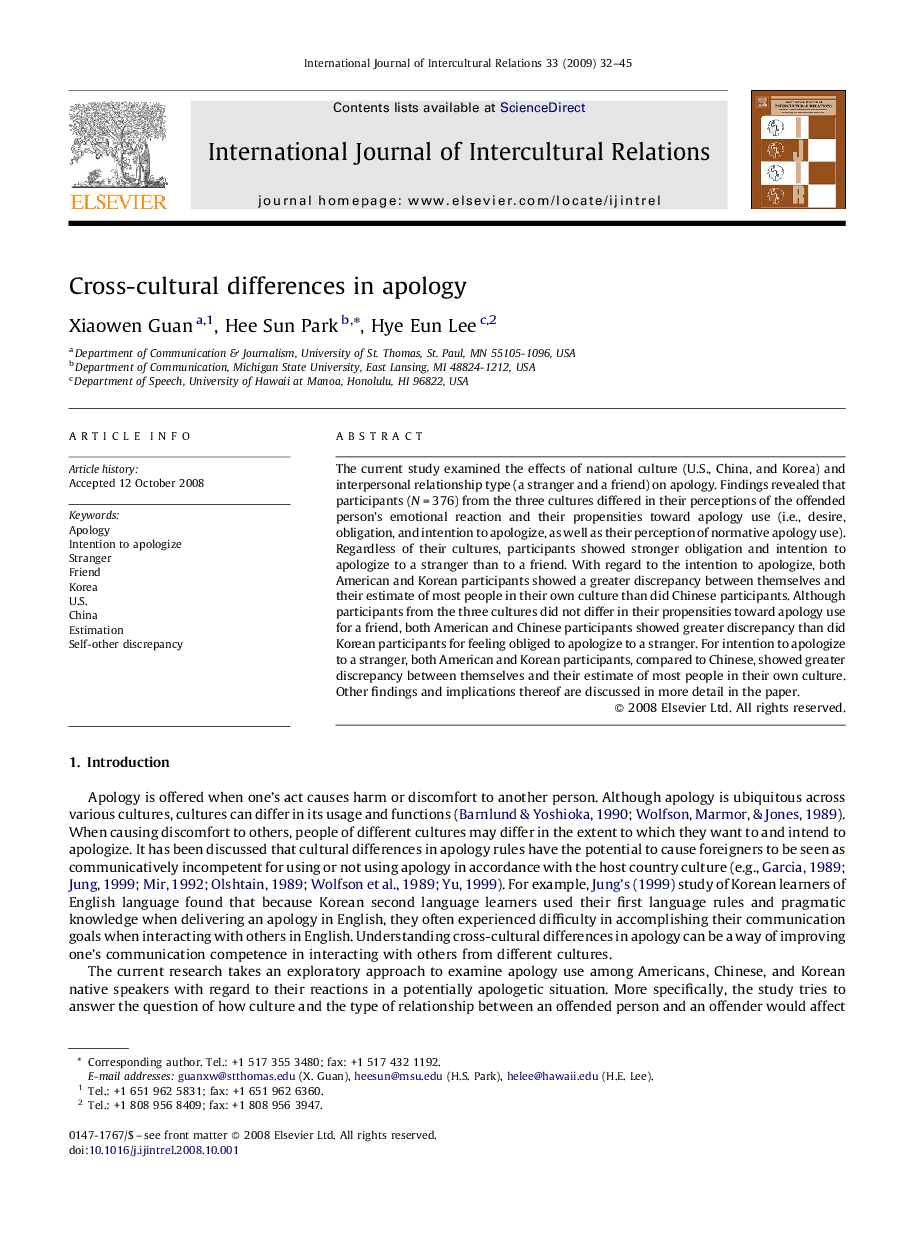| Article ID | Journal | Published Year | Pages | File Type |
|---|---|---|---|---|
| 947474 | International Journal of Intercultural Relations | 2009 | 14 Pages |
The current study examined the effects of national culture (U.S., China, and Korea) and interpersonal relationship type (a stranger and a friend) on apology. Findings revealed that participants (N = 376) from the three cultures differed in their perceptions of the offended person's emotional reaction and their propensities toward apology use (i.e., desire, obligation, and intention to apologize, as well as their perception of normative apology use). Regardless of their cultures, participants showed stronger obligation and intention to apologize to a stranger than to a friend. With regard to the intention to apologize, both American and Korean participants showed a greater discrepancy between themselves and their estimate of most people in their own culture than did Chinese participants. Although participants from the three cultures did not differ in their propensities toward apology use for a friend, both American and Chinese participants showed greater discrepancy than did Korean participants for feeling obliged to apologize to a stranger. For intention to apologize to a stranger, both American and Korean participants, compared to Chinese, showed greater discrepancy between themselves and their estimate of most people in their own culture. Other findings and implications thereof are discussed in more detail in the paper.
